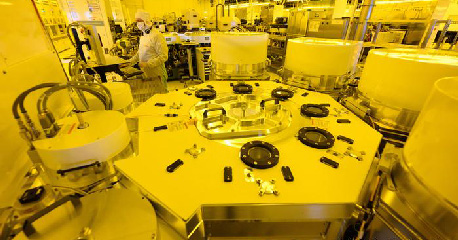![]()
Chinese customs officials last week arrested a woman posing as a pregnant woman trying to move hundreds of semiconductor chips from Macau to Zhuhai, Guangzhou. This highlights the rampant underground trade in China amid shortages.
The woman, who was arrested on November 25, was carrying 202 processors and nine smartphones under a large abdominal prosthesis, Chinese officials said on Thursday.
An officer at the border crossing became suspicious when interrogating the woman, who claimed that "she was five or six months pregnant," but had a large belly that looked like she was in the third trimester.
High domestic demand and an extremely limited supply of semiconductors have given rise to a thriving underground market for microchips in China, where second-hand or expired chips are said to fetch up to 500 times their original cost.
China has been facing a severe shortage of semiconductors since 2020, when a global chip shortage caused by disruptions in the COVID-19 supply chain rippled through every aspect of China's tech industry.
This has exacerbated the shortage since October 2022, when the United States imposed stricter technology export controls on China. U.S. officials say the technology controls are designed to deny the Chinese military access to key technologies that could be used in advanced computing and weapons manufacturing.
While China's black market for chips existed before the semiconductor crunch, in recent months more and more people have found it lucrative, swelling the size of the underground deal.
"Everyone is a speculator," a semiconductor chip broker told Bloomberg.
Apple's iPhones are also often shipped to China, where they are more expensive than in Hong Kong and Macau due to import duties. Smugglers are occasionally caught at the border, often carrying dozens of devices.
China consumes three-quarters of the world's semiconductors but produces only about 15% of global production. The imbalance is most pronounced in China's auto industry as trade in semiconductor chips declines.
Substandard chips may have infiltrated the supply chain, the automotive industry is even worse, and safety-related products are all at risk.
Gray market transactions mainly take place online, in WeChat groups and emails, but also sometimes take place in brick-and-mortar markets such as Shenzhen's SEG Electronics Market Plaza, Huaqiangbei.
Many analysts pointed out that in the coming year, China's semiconductor crisis will only continue to worsen. The impact of the US chip ban will go far beyond the semiconductor industry.
Huang Shicong, a Taiwanese financial expert, also said in an interview with reporters that China has developed many chip companies, but it has no time to go through certification, because the certification time takes 3 to 5 years. The problem is that its factory building has been built, and it It is hard production, and finally it flows to the black market and becomes the source of unscrupulous products.
"In what field is this kind of chip without official certification, or from an unknown source, used? If you use it in the automotive market, it is very dangerous, because automotive chips generally have to go through long-term safety certification. If the source is unknown If the chip is installed directly, it will affect the security of the entire terminal," he said.


